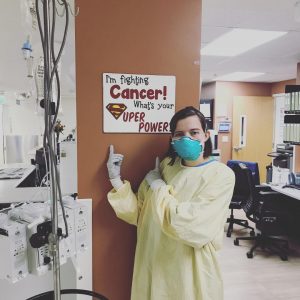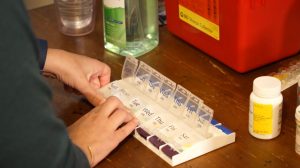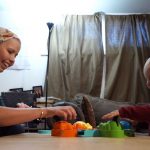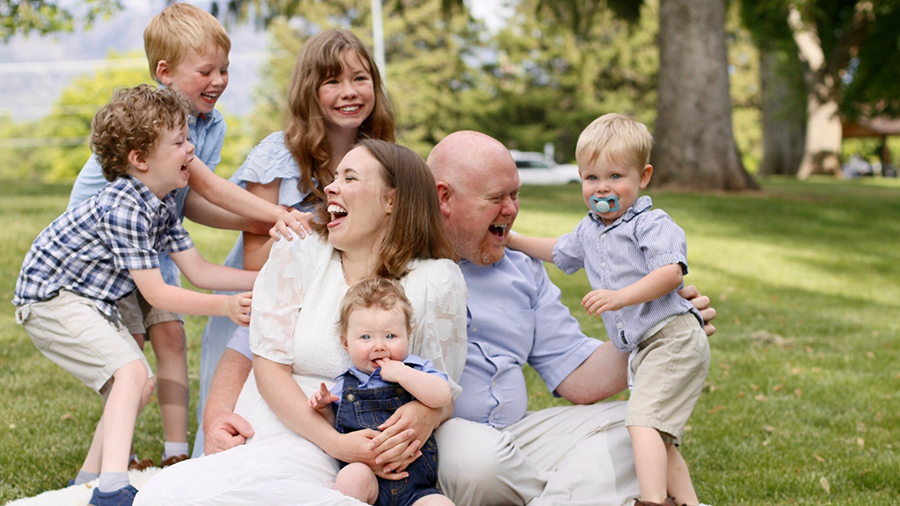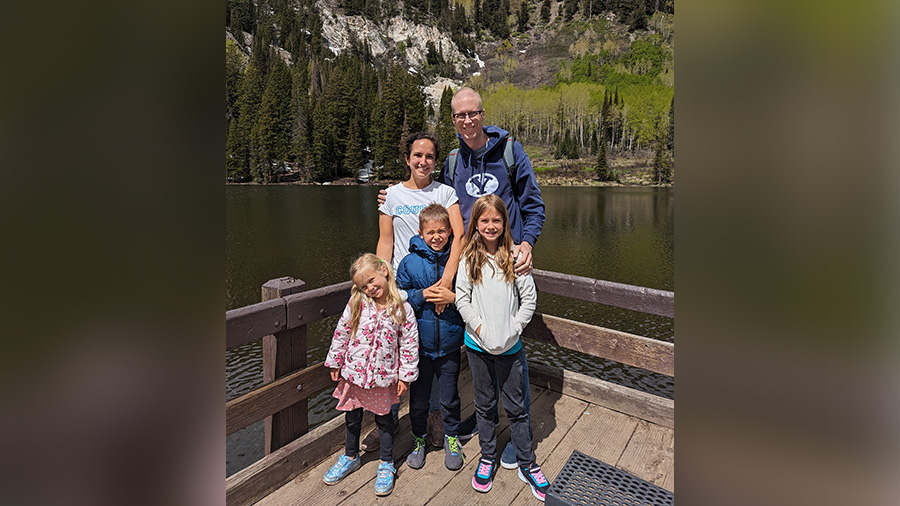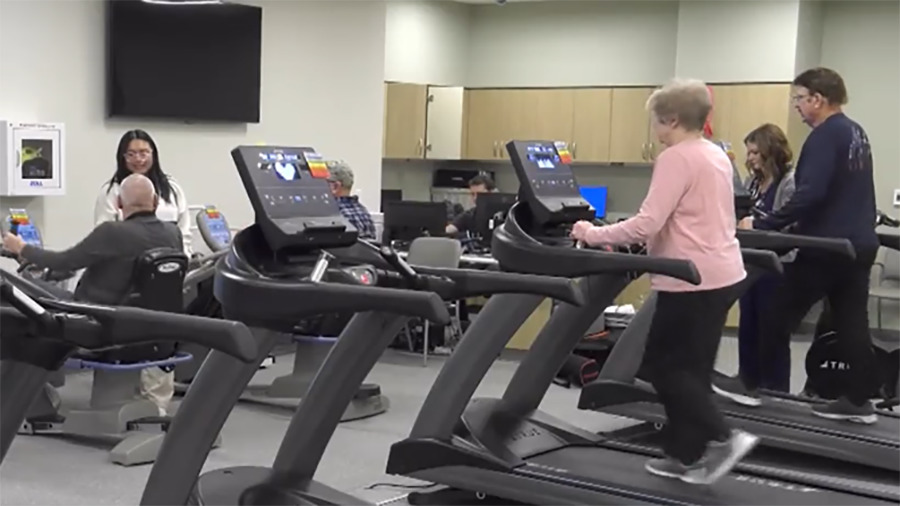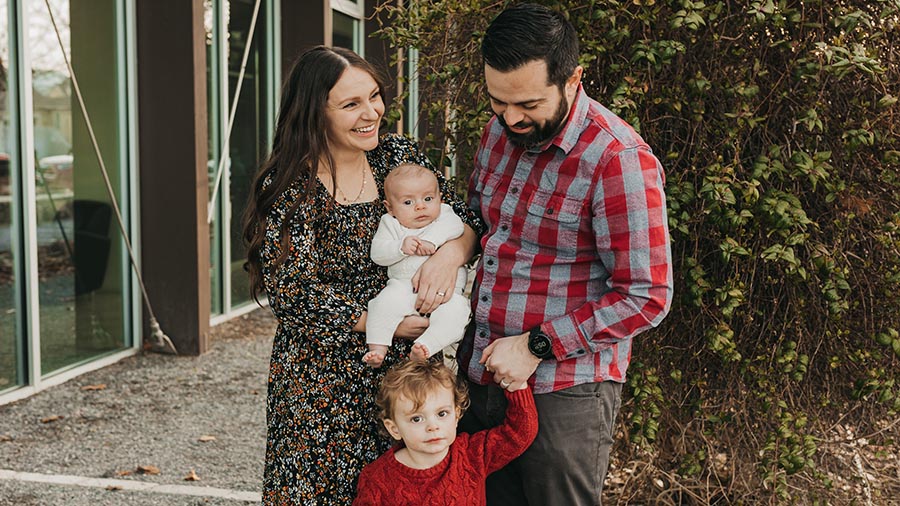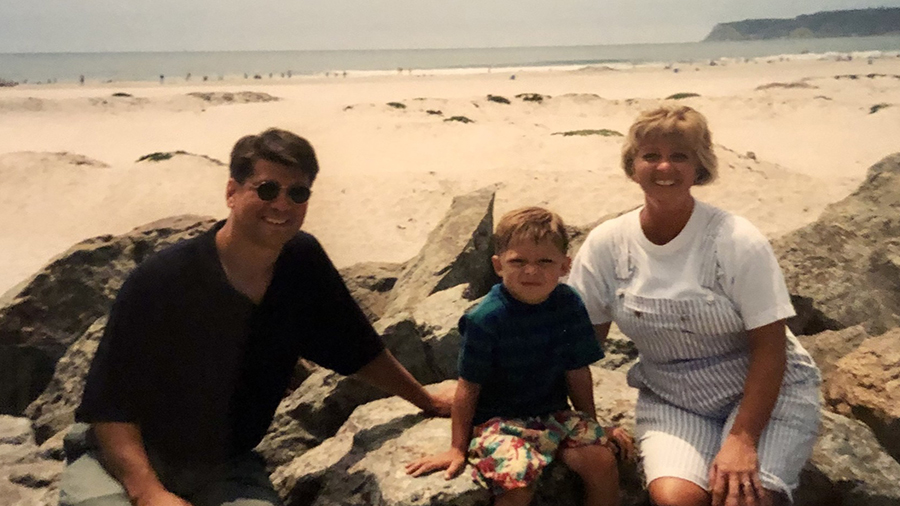Ten Suggestions For Talking To Someone With Cancer
Oct 10, 2019, 8:54 PM | Updated: 9:15 pm
PROVO, Utah — Talking to someone with cancer or another serious illness can make anyone a little nervous or uncomfortable. One Provo woman, who knows firsthand what it’s like to be on the other side of those conversations, gave a few suggestions.
At 26 years old, Diana Mock never thought she have to have this conversation with her toddler.
“Remember, mommy’s got cancer?” Mock asked her son.
“Makes you sad,” her 2-year-old replied.
“Yeah, it makes me sad a little bit, but it’s gonna make me better, right?” she said.
“OK,” he replied as he used his little fingers to start tickling his mom’s face.
“You’re tickling me to make me happy! He does that every time I come home from chemo,” Mock said through giggles.
Mock has been open about her experience since the beginning. She said it came totally unexpected.
One day, she called her parents. “I told them that I was pregnant and then the next day I called them and said that I had cancer,” she recalled.
Mock was diagnosed with acute lymphoblastic leukemia last December. Because of treatment, she lost her second baby.
On chemo days, Mock said she takes up to 25 pills a day. She no longer works and said she doesn’t have the same energy levels or even mental capacity she used to. She even brings treats to the park to bribe her son back to the car since she can’t chase after him anymore.
This is Mock’s new reality. She will be on chemo for three years and Mock said her doctor told her she has a 60-75% cure rate.
Since the diagnosis, she’s found people approach her differently.
“It’s a little shocking at first … and it can be awkward,” Mock said. But she said it’s therapeutic for her to talk about it.
“I love to talk about it. This is now almost like a full-time job for me, and it’s what I do,” she explained. “So when people ask me, ‘Hey, how was your week?’ ‘Well, I was at the hospital, and I was doing this, and I’m taking these pills,’” she said.
Others in her situation might not be as anxious to talk about it. She suggested following their lead.
“You could even flat-out ask somebody and say: ‘Well, what do you want to talk about? Do you want to talk about treatment? You want to talk about something else?’” she suggested.
Ten suggestions for talking to someone with cancer:
- Let them guide the conversation. Say “tell me about your week,” giving them a chance to talk about what they want to, whether that be about treatment or something different.
- Be active, not passive. Rather than asking, “What can I do to help?” make a suggestion like, “I’m going to come over and clean your house.”
- Set a reminder to follow up later. After the initial diagnosis, people often forget to reach out during treatment when cancer patients need the most support.
- Be genuine. Listen intently, don’t be afraid to say the word “cancer” or to ask the questions you are really curious about, when appropriate.
- Ask specific questions. Instead of asking, “How are you?” try asking more specific questions such as, “How was treatment today?” or “Are you getting much sleep?”
- Make a calendar. Organize a group of friends and divide up responsibilities on a calendar to ensure the individual with cancer is always cared for.
- Extend social invitations. Invite your friend with cancer to normal activities like dinner and a movie. Don’t assume they wouldn’t want to come. Instead, let your friend decide whether they are feeling up to the event.
- Avoid military metaphors. Avoid militaristic language such as, “You’re such a fighter” or “She lost her battle to cancer.” Let that individual frame their experience in whatever context they choose to.
- Use technology to stay connected. Reach out virtually if a face-to-face conversation isn’t an option. This allows the person with cancer to respond on their own terms when they are feeling well enough.
- Give a gift card for dinner. Rather than assuming what your friend with cancer would like to eat, a gift card allows that individual to eat whatever sounds good to them or whatever fits their dietary restrictions. Or, simply ask what they would like.
Mock’s favorite approach is saying, “Tell me about your week, or tell me about your day.”
If appropriate, Mock encouraged people to ask the questions they’re curious about.
“I would love it if people were more real,” she said. “I like to share what’s going on in my life; and since this is the huge thing going on in my life, and will be for years to come, I want to talk about it.”
At first, Mock had an outpouring of support. “Tons and tons of help,” she said. “Six months down the road, you’re still going and most people have forgotten.”
She recognized it’s easy for people to get busy with their lives, but encouraged people to follow up later. “Maybe even set a reminder in your calendar,” she said.
Dr. Mark Lewis, an oncologist at Intermountain Medical Center, is a cancer survivor himself who knows the feeling.
“People view you differently once they know that you have a cancer diagnosis,” he said. “It’s tough for the patient, because you’re already dealing with the shock of potentially a life-threatening illness, and then there can be a profound sense of isolation as people sort of keep their distance.”
Rather than asking, “What can I do?” he suggested making a specific invitation.
“Could I bring a meal over? Could I help you with childcare? — these sort of tangible examples,” he said. Lewis said this better helps the patient vocalize exactly what they need at any given time.
Lewis said the question, “How are you?” is complicated. Although it’s often a natural question to ask, he said most people with cancer aren’t feeling very well and it can turn into an awkward interaction.
“Yeah … usually, I’m not doing great,” Mock admitted.
Instead, Lewis suggested asking specific questions.
“Are you having side effects from treatment? How is the tumor itself making you feel?” he recommended. “These are all just a little bit more specific and really open the patient up to be in more of a dialogue.”
Lewis said this gives the patient control. “It really empowers the patients to be in charge of the conversation and engage or disengage as they see fit,” he said.
Although it’s often meant with good intention, Lewis reminded people to be cautious about using militaristic language to describe a cancer patient’s experience such as “You’re such a fighter!” or “Keep on fighting!”
He said not everyone leans into the metaphor of fighting since those phrases suggest volition, “and no one chooses to have a cancer diagnosis,” he said. “No one deserves to die of cancer, and it’s not a lack of spirit or lack of fight. I think that’s where a lot of people start to have an issue with the military metaphors around cancer.”
Lewis encouraged people to let the person with cancer determine what metaphor they will use to describe their experience.
Mock said she agrees. “I didn’t go looking for a fight and I don’t feel like I’m necessarily being strong, because a lot of the times I just don’t feel emotionally or physically strong,” she said.
She said terminology such as, “I beat cancer” or “They lost their battle to cancer,” implies that there are winners and losers, which isn’t the case.
Lewis said sometimes sending a text message is the best option. “In the modern world, we have so many tools to circumvent that (isolation) and make people feel connected, even when they’re feeling unwell,” he said.
Lewis chose to be very open about his own diagnosis and treatment. He encouraged his patients to also be open about their own experience if they’re comfortable with it.
“I realized that there was real power and connection in being open. And again, this was totally my decision to go public and not be private about it,” he said.
Bottom line, both Mock and Lewis encouraged friends and family members of people with cancer to just be there. “There’s just some things you can’t fix in the moment, so just being there to listen,” Mock said.
Mock said she is motivated every day to go back to the hospital and have painful procedures so she can also be there for her husband and little Caper.
”I want to be there for my little boy and hopefully future children as well,” she said.
Her husband, Logan Mock, lost his own father to cancer when he was growing up. He was already studying to be a physician’s assistant in oncology when his wife was also diagnosed with cancer.
Diana Mock said this gives Logan even more motivation to work hard in school.
“He’ll be able to relate to a lot of patients, which I think is going to help a lot of people to have that empathy,” she said. “He can really feel their shock and relate to that.”

